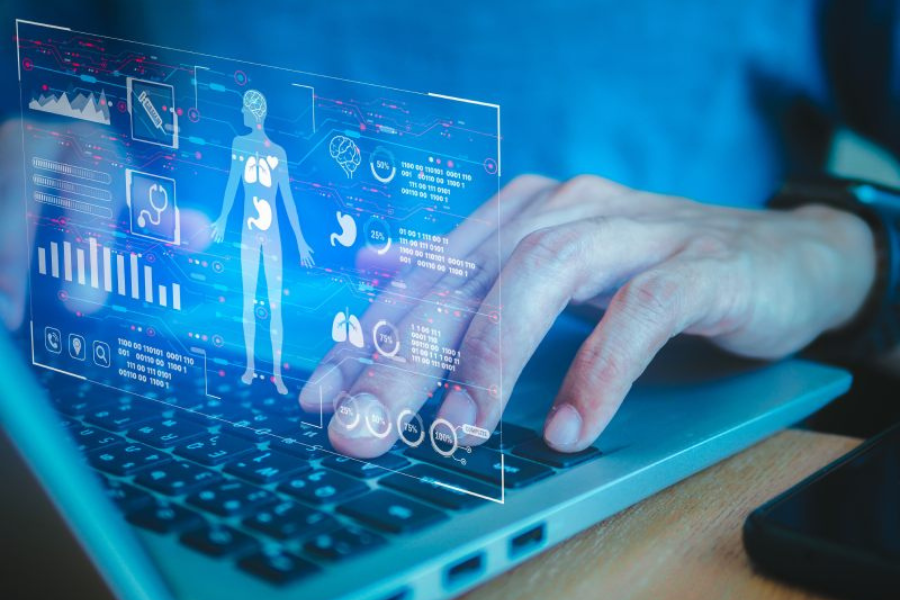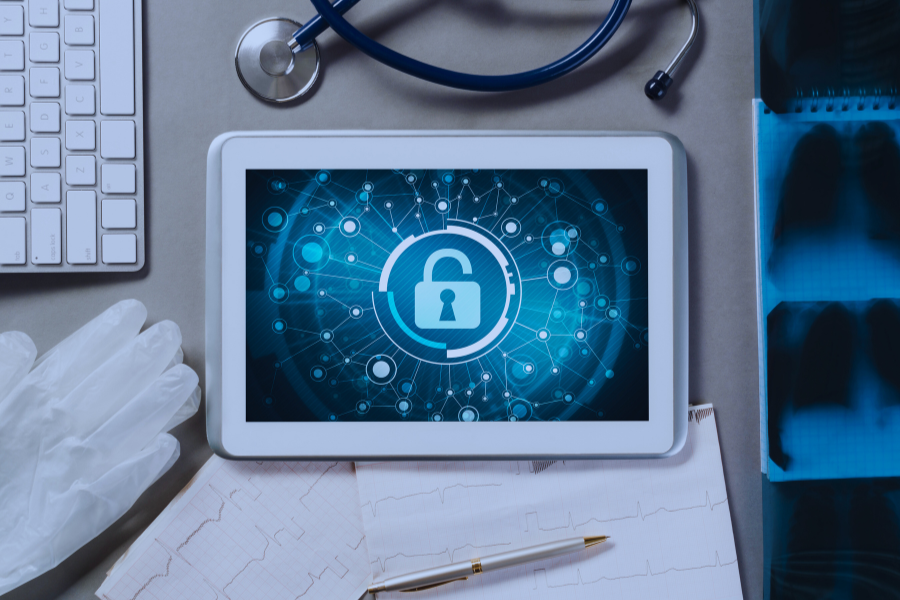The Health Insurance Portability and Accountability Act (HIPAA) was established to protect sensitive patient information and ensure that healthcare providers handle this information very carefully. While primarily known for its role in protecting patient data, HIPAA also gives patients certain rights over their health information.
We’ve decided to share an article that will explain how HIPAA safeguards patient information and why these protections are essential to maintaining trust in the healthcare system.

Why Is HIPAA Important to Patients?
HIPAA is important to patients because it protects patient health information, ensuring that sensitive data remains private and secure. This law not only prevents unauthorized access but also reduces the risk of misuse, helping to safeguard patients from identity theft, discrimination, or other harmful consequences.
Compliance with HIPAA is critical for maintaining patient safety. Healthcare providers must handle PHI (protected health information) carefully to prevent breaches that could expose patients to personal and financial risks. By following HIPAA standards, healthcare organizations build trust with patients, where patients feel confident that their personal health details are managed responsibly and their well-being is prioritized.
How Does HIPAA Protect Patients?
Now that we’ve established why is HIPAA important to patients, let’s see how it provides key provisions to protect patient information. The two most important are the HIPAA Privacy Rule and the HIPAA Security Rule. Both ensure the confidentiality and integrity of patient data.
The HIPAA Privacy Rule
The HIPAA Privacy Rule establishes standards for protecting individually identifiable health information, also known as Protected Health Information (PHI). It applies to healthcare providers, insurers, and their business associates, ensuring that PHI cannot be disclosed or shared without the patient’s explicit consent.
This rule gives patients greater control over their personal health information, allowing them to request limitations on how their data is used and when it is shared. Additionally, it requires healthcare providers to inform patients about their privacy rights and how their information will be protected, building trust between patients and providers.
The HIPAA Security Rule
While the Privacy Rule focuses on how information is shared, the HIPAA Security Rule safeguards the electronic storage and transmission of PHI. It requires healthcare organizations to implement administrative, physical, and technical safeguards to prevent unauthorized access to electronically protected health information (ePHI).
These safeguards include encryption, secure passwords, and access control systems that limit data access to authorized personnel only. By enforcing these security measures, the rule ensures that patient data remains safe from cyber threats and breaches.
Patient Rights Under HIPAA
Understanding why is HIPAA important to patients will help you learn about several key rights that will help you take control of your health information.
Right to Access Medical Records
Under HIPAA, patients have the right to access their medical records at all times. This allows them to review, inspect, and obtain copies of their health information, as well as to stay informed about their health status, treatments, and any changes in their care.
It also enables patients to share their health records with other healthcare providers if needed. If the patient decides to change their primary care provider (PCP) the current healthcare provider is required to send records promptly and may only charge a reasonable fee for copying and sending the information.
Right to Request Amendments
Patients have the right to request amendments to their medical records if they believe the information is inaccurate or incomplete. This makes sure that health records are correct and up-to-date, which is crucial for accurate diagnoses and treatments.
While healthcare providers are not obligated to make every requested revision, they must review each request and respond in a timely manner. If the amendment is denied, patients can submit a statement of disagreement, which must be included in the record.
Right to Receive a Notice of Privacy Practices
HIPAA requires providers to give patients a Notice of Privacy Practices (NPP) explaining how their health information may be used and shared. This notice informs patients about their privacy rights, including how their information is protected and how to file a complaint if they believe their rights have been violated.
By receiving this notice, patients better understand how their data is handled and the safeguards in place to protect their privacy.
Safeguards Against Unauthorized Disclosure
To prevent unauthorized access to patient information, healthcare organizations are required to implement a range of security measures that protect data from breaches or misuse. These safeguards fall into three main categories:
- Administrative safeguards: creating policies and procedures that outline how patient data is handled across the organization. Staff training, regular risk assessments, and strict access controls are part of this category, ensuring that only authorized personnel have access to sensitive health information.
- Physical safeguards: securing the physical locations where patient data is stored, such as using locked facilities, controlled access areas, and surveillance systems. Healthcare organizations must ensure that both paper and electronic records are protected from unauthorized physical access, damage, or theft.
- Technical safeguards: focus on securing electronic protected health information (ePHI). Technical safeguards include encryption, firewalls, and multi-factor authentication. These will ensure that only authorized users can access electronic health records and protect it from cyber threats such as hacking, malware, and unauthorized access.
These security measures form a defense system that protects patient data from unauthorized disclosure, maintaining confidentiality and trust in the healthcare system.

Benefits of HIPAA Compliance for Patients
For patients, HIPAA compliance offers multiple crucial benefits beyond privacy protection. One of the most significant benefits is the increased trust patients place in healthcare providers. When organizations comply with HIPAA regulations, patients feel safe that their sensitive information is being handled securely.
HIPAA compliance also increases patients’ control over their health information by granting them rights such as accessing, amending, and managing the use of their medical records. This access helps patients stay informed and involved in their healthcare, leading to more accurate diagnoses and effective treatments.
Additionally, when healthcare providers follow HIPAA guidelines, the chances of data breaches or unauthorized disclosures are minimized, assuring patients that their personal data is safe.
Conclusion
HIPAA plays a crucial role in safeguarding patient privacy and protecting sensitive health information from unauthorized access. By following HIPAA regulations, healthcare providers create an environment where patients feel secure, confident, and more willing to share important details about their health.
It’s crucial for patients to be proactive in understanding their rights under HIPAA and to exercise them to protect their personal information. In doing so, they can help maintain trust in the healthcare system and ensure that their privacy is respected throughout their care journey.
As a trusted outsourcing medical billing service provider, we strictly adhere to HIPAA regulations, ensuring that all sensitive health information is managed securely and in compliance with legal requirements.

With a strong background in the marketing industry and healthcare leadership roles, Filip is responsible for CLICKVISIONBPO’s sales strategies and onboarding new clients. With a passion for sharing insights gained from his experience, he also shares valuable knowledge through industry related articles.
